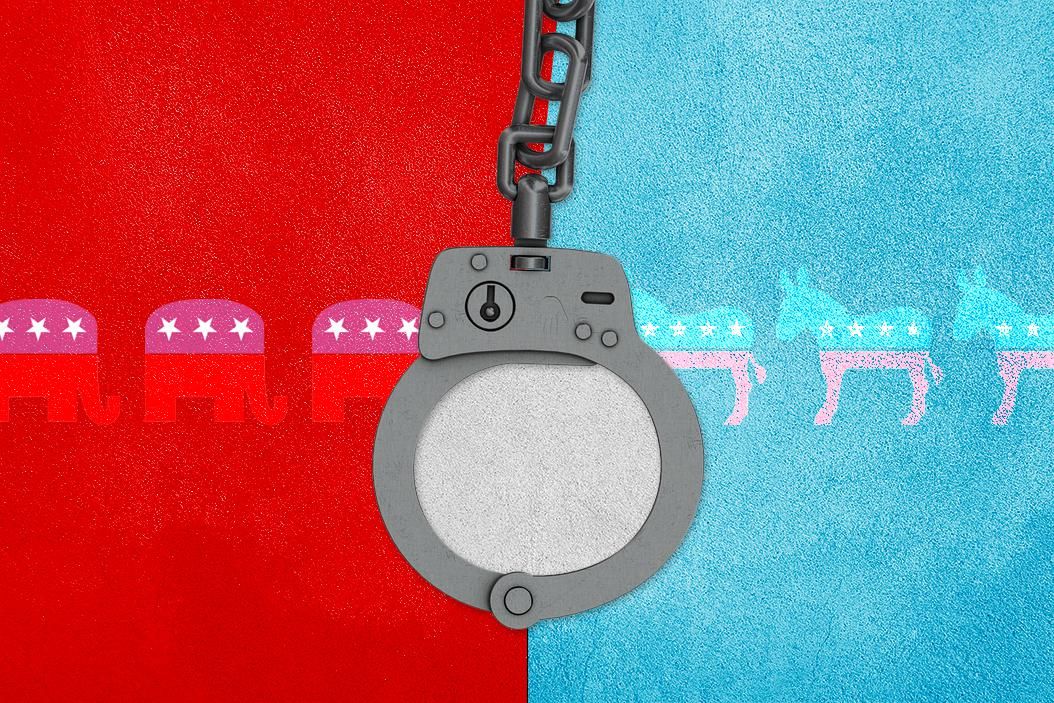January 26, 2022
A recent spate of violent crimes in New York City has made national headlines. Since Eric Adams was sworn in four weeks ago as mayor of America’s most populous city, violence on the streets — and the subways — has again become a major political focus. Things got even more heated this week, when two young cops were killed while responding to a domestic dispute in Harlem.
Crime is not only a dominant political issue in New York. It also resonates more broadly with American voters worried over increased lawlessness and unrest. Indeed, crime is already shaping up to be a wedge issue as Republicans vie to win control of the US Congress this November.
What’s causing the uptick in crime? America has experienced a crime wave since the pandemic started. Violent crimes – murder, robberies, assault, and rape – were up 3 percent in 2020, while the national murder rate spiked by 25 percent from the previous year. Still, this comes as the national crime rate has dropped significantly since the 1990s.
Pandemic-induced instability is responsible, in large part, for pushing crime rates up in big cities like Chicago, New York, and Los Angeles. For months, lockdowns and layoffs kept vulnerable youth and young adults out of productive work and school environments, while also putting huge economic pressures on already-stretched families.
What’s more, general insecurity created by the public health crisis — including a change in policing practices — caused not only a run on toilet paper, but also on guns. An estimated 20 million guns were sold in the US in 2020, likely contributing to a rise in urban gun violence. Domestic violence also soared after lockdown orders were enforced in March 2020, increasing 8.1 percent from pre-pandemic levels.
But politically, the perception of crime is often more consequential than crime statistics.
Polls show that most voters think that crime is a major issue. A whopping 58 percent of Americans surveyed by Ipsos think the situation is worse now than in the early 1990s, when nationwide violence prompted Congress to pass the biggest crime bill in US history.
Anxieties about crime, stability, and disorder could also be linked to broader concerns about the state of the US economy. Inflation is at a four-decade high, leading to a general sense of malaise among the electorate. Revealingly, just 21 percent of Americans now say that they are satisfied with the way things are headed in the country.
Crime has long been a wedge issue in US politics. Richard Nixon famously ran on a law-and-order platform in 1968, when fear of anarchy and racial unrest was pronounced. More recently, Donald Trump made tackling crime a cornerstone of his presidency, vowing to end “American carnage.”
In politics, timing is everything. The perception that Biden has not handled public safety well is a boon for Republicans ahead of the November midterms. Indeed, some Republicans are already drawing on people’s anxieties about lawlessness to try and win back middle-class voters in the suburbs — the new political battleground.
Historical precedent is also on the GOP’s side: for decades, voters have seen Republicans as more adept at handling crime. Meanwhile, recent attempts by the left flank of the Democratic Party to address systemic racism by slashing the police budget — using the slogan “defund the police” — has not resonated with the majority of Americans, including swing suburban voters who live in areas where public safety is perceived to be deteriorating.
Crime might be up somewhat in urban areas. But what matters more is that most Americans think things are dire – and they don’t trust current leadership to handle the disorder.
More For You
- YouTube
In this Quick Take, Ian Bremmer weighs in on the politicization of the Olympics after comments by Team USA freestyle skier Hunter Hess sparked backlash about patriotism and national representation.
Most Popular
Bad Bunny during the Super Bowl LX halftime show press conference at Moscone Center.
Kirby Lee-Imagn Images
100 million: The number of people expected to watch the Super Bowl halftime performance with Bad Bunny, the Puerto Rican superstar and newly minted Album of the Year winner at the Grammys.
Alysa Liu of Team USA during Women Single Skating Short Program team event at the Winter Olympic Games in Milano Cortina, Italy, on February 6, 2026.
Raniero Corbelletti/AFLO
Brazilian skiers, American ICE agents, Israeli bobsledders – this is just a smattering of the fascinating characters that will be present at this year’s Winter Olympics. Yet the focus will be a different country, one that isn’t formally competing: Russia.
What We’re Watching: Big week for elections, US and China make trade deals, Suicide bombing in Pakistan
Feb 06, 2026
Japanese Prime Minister Sanae Takaichi, president of the Liberal Democratic Party (LDP), appeals for a candidate during a street speech of the House of Representatives Election Campaign in Shintomi Town, Miyazaki Prefecture on February 6, 2026. The Lower House election will feature voting and counting on February 8th.
The Yomiuri Shimbun
Japanese voters head to the polls on Sunday in a snap election for the national legislature’s lower house, called just three months into Prime Minister Sanae Takaichi’s tenure.
© 2025 GZERO Media. All Rights Reserved | A Eurasia Group media company.
